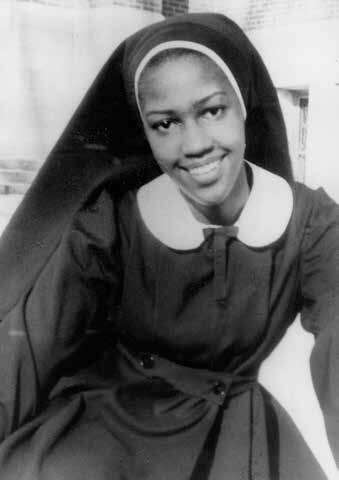Celebrating Black History Month

Sister Thea Bowman was born Bertha Elizabeth Bowman in 1937 in the state of Mississippi to parents Dr. Theon Bowman, a physician and Mary Esther Bowman, a teacher. As a child, she converted to Catholicism because she was inspired by how Catholics put faith into action. She learned that God loved and provided for the poor and the oppressed.
At 15, she wanted to join the Franciscan Sisters of Perpetual Adoration and went to LaCrosse, Wisconsin – where she would be the only African-American member of her religious community. She was given the name, “Sister Mary Thea” and became a teacher. She later earned her PhD and MA in English from Catholic University of America. Sister Thea went on to become a founding faculty member of the Institute for Black Catholic Studies at Xavier University.
In 1978, Sister Thea accepted an appointment by Bishop Joseph Bernard Brunini and became the director of Office of Intercultural Affairs for the Diocese of Jackson. Sister Thea gave presentations across the country that included gatherings that consisted of singing, gospel preaching, prayer and storytelling. These programs aimed to break down racial and cultural barriers. She urged people to communicate with one another so that they could understand other cultures and races.
In 1984, Sister Thea’s parents passed, and she became diagnosed with breast cancer. As her health deteriorated, she continued to speak at many events and in 1989, was invited to be the keynote speaker at the annual Black Catholics conference where she addressed the U.S. Bishops at Seton Hall University. She advised the bishops to encourage inclusivity and full participation of African Americans within Church leadership, and to understand the necessity and value of Catholic schools in the African-American community.
On March 30, 1990, at 52 years old, Sister Thea died peacefully in her hometown and was buried next to her parents. An education foundation to assist needy students attend Catholic universities; housing units for the poor and elderly, and a health clinic for the marginalized have all been named in her honor as well as the creation of books, articles, catechetical resources, visual media productions, and a stage play. Statues and stained-glass windows contain her image which attest to Sister Thea’s spiritual impact and example of holiness for the faithful.
Did You Know?
In 1565, both free and enslaved black individuals helped found the oldest town in America — St. Augustine, FL. It was then in 1693 that Spain offered freedom in Florida to slaves who convert to Catholicism. These freed slaves lived in a community northeast of St. Augustine. Established in 1738, Gracia Real de Santa Teresa de Mose, or what is now known as Fort Mose, became the first free black town in the United States.
